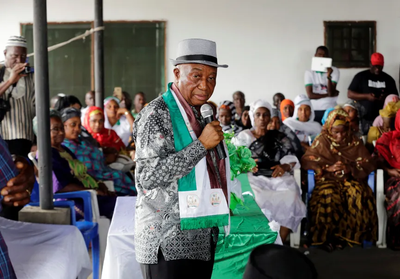40: Amid a rising cost-of-living crisis in his country, Liberian President Joseph Boakai, who took office in January, has slashed his own salary by 40%. The gesture of solidarity, which echoes a similar move by his predecessor, will bring his yearly pay down to $8,000. Liberia’s GDP per capita is about $800 a year, among the lowest of any country in the world.
359: Airstrikes by Myanmar’s military junta killed at least 359 civilians between January and April, putting the regime on pace to kill more noncombatants in 2024 than in the previous three years combined. In the three years since it took power in a coup, the junta has been waging war against a patchwork of regional and ethnic militias. The US has tried to sanction the sale of jet fuel to the Myanmar regime, but China and Vietnam have skirted those efforts. For the historical background, see here.
24: Grandma! Grandpa! What are you DOING in there??!! During the pandemic, diagnoses of sexually transmitted diseases among US senior citizens jumped by nearly 24%, new data show. That’s the highest of any age group. And to think, staying inside was supposed to “stop the spread”? (OK, we’ll just stop there.)
1.2 million: Federal police in Brazil say a crime group with links to right-wing former President Jair Bolsonaro tried to illegally sell $1.2 million worth of jewels, watches, and other luxury gifts from foreign leaders. The cash was allegedly funneled into accounts controlled by Bolsonaro and his family. The populist Bolsonaro, a one-time political outsider, won the 2018 election in part by promising to tackle Brazil’s rampant corruption, but watchdogs say he was part of the problem.
